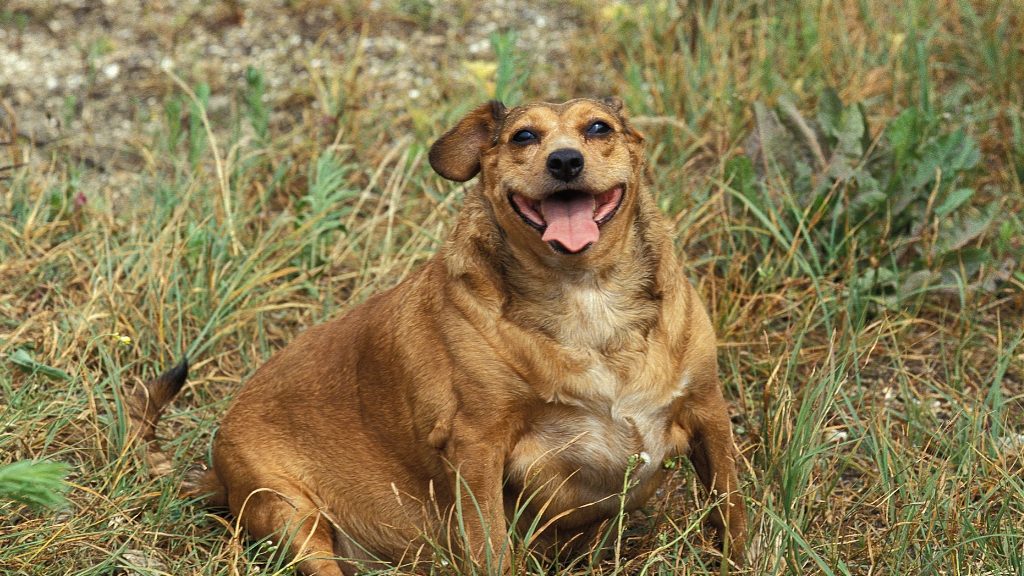
Older dogs, just like humans, experience a range of age-related health issues that can significantly impact their quality of life.
Common health problems in senior dogs include kidney disease, heart failure, doggie dementia, joint problems, cancer, and obesity, among others.
As they age, it becomes more important to pay attention to their health and be informed about the conditions that can affect them.
Let’s explore 11 common senior pet diseases that you should be familiar with.
Most common health problems in senior dogs
1. Arthritis
Arthritis is a prevalent condition in senior dogs, characterized by inflammation in the joints and surrounding tissues. It can be caused by wear and tear, genetics, or injuries.
Signs include
- Stiffness
- Limping
- Difficulty in getting up or lying down
- Decreased mobility, making it challenging for dogs to enjoy their regular activities
- Back legs shaking
- Lick repeatedly at the joint.
- Other changes in behavior, like snapping if you attempt to touch them
Treatment 🩺 Treatment options include pain management strategies, such as non-steroidal anti-inflammatory drugs (NSAIDs), joint supplements (e.g., glucosamine and chondroitin), physical therapy, weight management, and modifications to the home environment to improve accessibility and reduce strain on joints.
Read more: How to Help a Senior Dog with Arthritis
2. Cancer
Cancer is the development of malignant tumors. It affects a significant portion of senior dogs and is a leading cause of mortality in this age group. Various types of cancer can manifest in dogs, some may be lymphoma, mast cell tumors, and mammary gland tumors.
Signs include
- Increased thirst
- Decreased appetite
- Upset stomach and vomiting
- Coughing
- Loss of energy
- Irregular shaped and inflamed lumps
Treatment 🩺 Diagnosis involves physical examination, imaging studies (such as X-rays or ultrasound), and biopsy. Treatment options for neoplasia can include surgery, chemotherapy, radiation therapy, or a combination of these, depending on the specific tumor and its stage. Early detection and timely treatment are key.
3. Chronic Kidney Disease (CKD)
CKD is a progressive condition that affects the kidneys’ ability to function properly, leading to a build-up of toxins in the body.
Signs include
- Increased thirst
- Frequent urination
- Weight loss
- Decreased appetite
- Lethargy
Treatment 🩺 Diagnostic is done through blood work and urinalysis, and the treatment typically involves dietary modifications, medications to manage symptoms, and regular monitoring of kidney function.
4. Chronic Pain
Chronic pain can be caused by various conditions. We already mentioned arthritis, but it could also be due to back problems, nerve-related issues, injuries, etc.
Signs include
- Limping
- Reluctance to move
- Changes in behavior
- Decreased appetite
- Decreased activity level
Treatment 🩺 There are pain scales, such as the Glasgow Composite Measure Pain Scale that can help assess and monitor pain levels in dogs. Don’t dismiss any of these symptoms thinking that are part of aging as there are many options to improve your dog’s comfort such as pain medication, physical therapy, acupuncture, and complementary therapies.
5. Cognitive Dysfunction
Canine cognitive dysfunction (CCD) is similar to dementia in humans. It is a progressive degenerative condition that affects the brain function.
Signs include
- Disorientation
- Confusion
- Changes in sleep patterns
- Loss of house training
- Decreased responsiveness
- Changes in social interactions
The causes of CCD in senior dogs may be multifactorial, including brain aging, accumulation of amyloid-beta plaques, oxidative stress, inflammation, genetic predisposition, and lifestyle.
Treatment 🩺 While there is no cure for CCD, management strategies can help slow down its progression and improve the dog's quality of life. These strategies include environmental enrichment, mental stimulation, nutritional supplements, and medications.
6. Dental Problems
Dental problems are more recurrent than you may think and they are not exclusive to senior dogs. Over the age of 3, between 80% and 90% of dogs have some kind of dental disease. Unfortunately, when they reach their senior years these conditions may be more complex causing pain, difficulty eating, and even systemic infections.
Signs include
- Messy eaters
- Chew on one side
- Rub their face after eating
- Decreased appetite
- Bad breath
- Swollen face
- Bleeding gums
- Wobbly or broken teeth
- Missing teeth
- Heavy tartar on the gums
Treatment 🩺 Prevention is key. Appropriate dental care includes regular dental check-ups and teeth cleaning. You may also need to incorporate dental treats into your dog’s care routine.
Read more: Comprehensive Guide to Senior Dog Dental Care
7. Heart Disease
It is a condition where the heart is unable to pump blood effectively, causing fluid accumulation in the lungs and other organs. Two types of heart conditions affect senior dogs, one involves the valves, and the other the heart muscle.
Signs include
- Coughing
- Tiredness
- Breathing difficulties
- Reduced exercise
- Reduced appetite
- Fainting
- A blueish tinge to the gums
- Fluid retention
Treatment 🩺 Diagnosis involves a thorough physical examination and ultrasound. The treatment may include medications to improve heart function, diuretics to manage fluid retention, and dietary modifications to reduce the workload on the heart.
To maintain optimal cardiovascular health in senior dogs include a balanced diet, regular exercise, and maintaining a healthy weight.
8. Incontinence
Urinary incontinence is the loss of bladder control and can occur in senior dogs due to weakened muscles, urinary tract infections, obesity, hormonal imbalances, injuries, etc.
Signs include
- Frequent urination
- Dribbling urine
- Wetting in their sleep or bed
- Leaking urine when they are resting or relaxed
Treatment 🩺 The treatments for incontinence may vary depending on the underlying cause of the condition, but it is commonly addressed using medication, dietary changes, or surgery.
Read more: How to Manage Incontinence in Dogs
9. Obesity
Weight gain in senior dogs is a significant concern as it can cause various health issues such as heart problems, liver disease, cancer, diabetes, and shorten their lifespan. Additionally, it makes dogs more prone to infections, dull fur, arthritis, injuries, and can significantly impact their quality of life.
The good news is that weight gain can be prevented or managed through proper nutrition, portion control, and regular exercise.

10. Skin and Coat Conditions
Skin and coat problems include dryness, itchiness, skin infections and hair loss. They can occur due to allergies, hormonal imbalances, nutritional deficiencies, bacteria, parasites or fungal infections.
Regular grooming, using appropriate shampoos and conditioners, and ensuring a balanced diet with essential fatty acids can help maintain healthy skin and coat.
Read more: Why is My Senior Dog Losing Hair?
11. Vision and Hearing Loss
Senior dogs may lose their eyesight due to cataracts, glaucoma, or progressive retinal atrophy. You may not even notice in the beginning because they quickly adapt and use other senses to compensate that they can’t see well.
Signs include
- Bumping into objects
- Reluctance to navigate unfamiliar environments
- Cloudy or opaque appearance in the eyes
- Startle or jump to shadows, objects, or people in the distance
- Changes in behavior

Similarly, hearing loss may occur in senior dogs often as a result of untreated ear infections.
Signs include
- Decreased responsiveness to auditory cues
- Startle responses
- Sleeping more
- Excessive barking
While there is no cure for these conditions, you can provide a safe environment that can help accommodate your senior dog’s needs.
Read more: How to Train A Deaf Dog: Expert Tips and Techniques
Final Thoughts
Extensive research on aging canine companions has shed light on common health challenges, including all those conditions that we have reviewed in this article. However, pet caregivers need to stay informed and understand these conditions to implement preventative measures, seek veterinary attention promptly, and provide the best possible care at this stage of life.
FAQs
Healthy senior dogs maintain a good quality of life and require similar care as adult dogs. They eat and drink normally, enjoy their walks, interact with family members, have an active life, etc. Geriatric dogs, on the other hand, are those living with conditions that may impact their daily life and need more attention from their caregivers.
It is not normal for a healthy aging dog to suddenly lose a lot of weight. When this happens it is probably a result of an underlying health issue, such as kidney disease, heart disease, cancer, etc. You need to bring your pup to the vet to get a proper diagnosis and treatment.
Some common health problems in senior labradors are hip and elbow dysplasia, arthritis, heart disease, obesity, hypothyroidism, ear infections, and retinal atrophy.
Recent Posts
Amazon's Top Black Friday and Cyber Monday Deals for 2024: Dog Products Edition
The holiday shopping season has officially started and Amazon has already released some incredible deals on pet products for Black Friday and Cyber Monday 2024. Here is our curated list of the...
As someone who boards dogs as a side gig, I am used to seeing many pet trackers and smart collars these days. These devices have become a must-have tool for pet owners (especially when trusting their...
